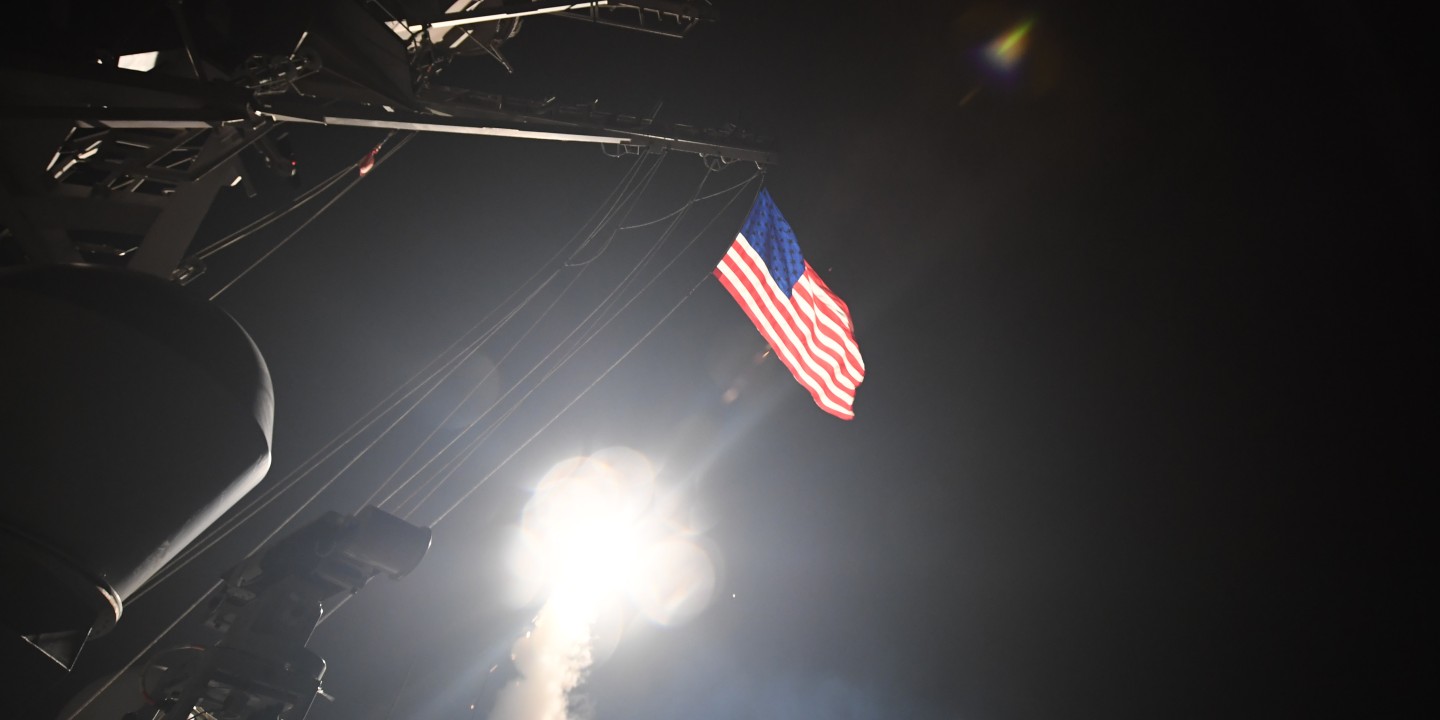Airstrikes won’t solve the crisis in Syria
American military action hasn’t helped in the Middle East before. Why would it now?

President Trump’s decision to attack a Syrian airfield on April 7 was many things. It was a swift response to Syria’s chemical weapons attack on a rebel-held town. It was a reversal of Trump’s stated policy of not escalating American involvement in the conflict. It was decisive. And it was popular.
But it was also another example of an approach the United States has too frequently taken in the Middle East. Military intervention offers a dramatic show of strength but has often made matters worse. The appeal of dramatic military action is likely to be especially tempting to a president who, by all accounts, thrives on public affirmation. When he wants a perceived win, he is willing to take considerable risks to get one without thinking through the consequences or the long-term strategy.
Judging from opinion polls, the strike on Syria was a win for Trump. Fifty-one percent of Americans said they supported it, a number far above President Trump’s overall approval rating. Many observers said the attack showed Trump as a leader to be reckoned with. Allies appalled at the behavior of Syrian president Bashar al-Assad lauded the strike because it showed the United States as willing to take a stand against al-Assad.
It’s possible that the attack is part of a plan to pressure al-Assad and Russian president Vladimir Putin to negotiate an end to the six-year civil war in Syria. But so far there is no evidence of such a plan. According to news reports and the president’s own statements, the president was moved to action by seeing photographs of children who suffered from nerve gas. These photos are disturbing; al-Assad’s crimes are appalling. But in recent years there have been many disturbing photos of innocent, suffering Syrians. Trump’s decision to act in this case, even as he prevents Syrian refugees from coming to the United States, is morally quixotic, not morally responsible.
As disturbing as Trump’s action is, so is the public’s apparent receptiveness to it. Americans cherish the image of American military might being a great world problem-solver. Military action elicits—at least initially—an instinctive show of support for a president. Andrew Bacevich’s book America’s War for the Greater Middle East, which was written during the Obama administration, offers a valuable corrective. Bacevich documents four decades of failed military adventures for the United States in the Middle East.
In the war in Syria, there is very little moral high ground, and there are no easy answers. There are certainly no solutions as easy as firing missiles.
A version of this article appears in the May 10 print edition under the title “Military impulse.”





